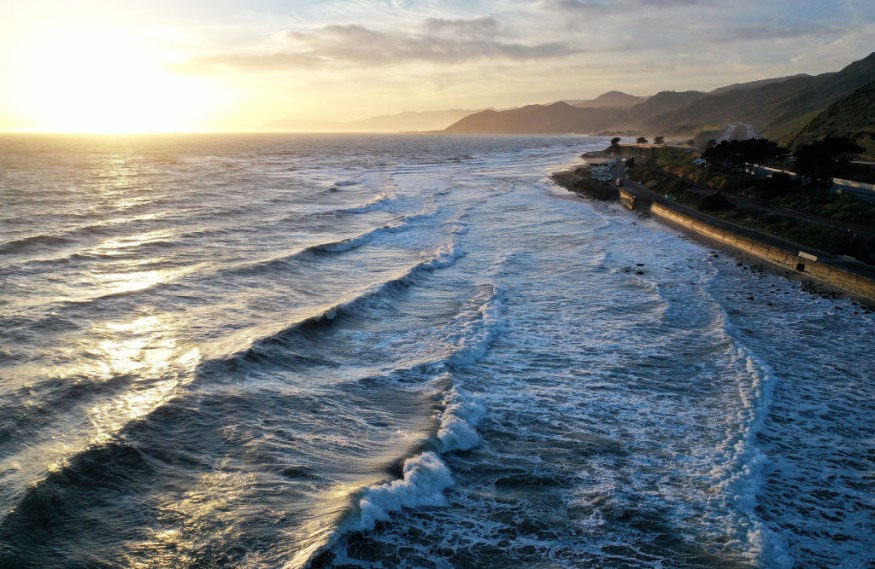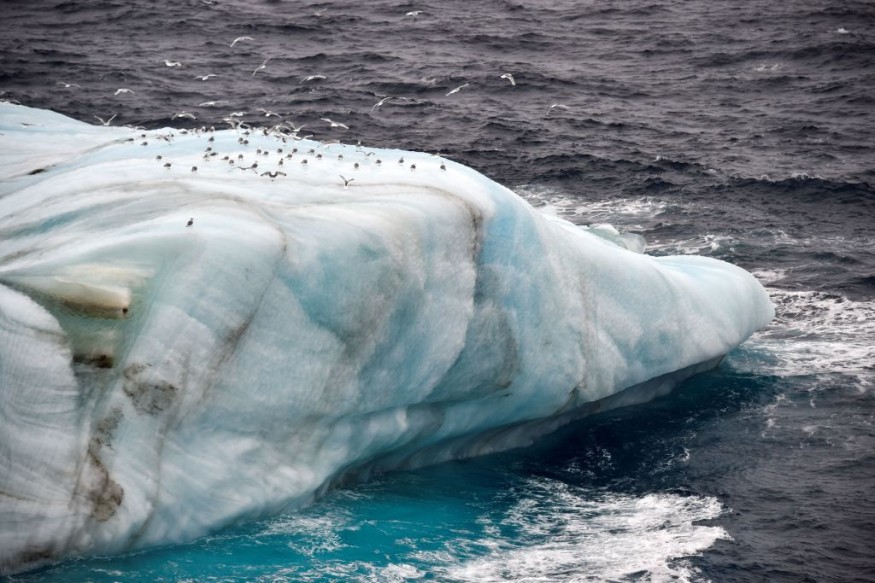A massive ocean circulation that carries heat across the world and helps govern weather patterns in the North Atlantic appears to be slowing down. In fact, according to new studies, it is at its lowest point in the previous 1,000 years.
The critical question is whether climate change is to blame for the slowdown. Is it merely a natural occurrence?
For the time being, experts believe it's a combination of the two.
Climate Change's Role

According to a new study published Monday in the journal Nature Climate Change, the current is slowing, and climate change likely has a modest role. However, the current behavior is still within its usual patterns.
To put it another way, the climate change signal hasn't yet pushed the current past its historically "normal" behavior. According to primary research author Mojib Latif, a scientist at the GEOMAR Helmholtz Centre for Ocean Research Kiel in Germany, natural variability "essentially exceeds" the signal from human-caused warming.
Nonetheless, this is likely to alter in the future. Climate models predict that the current will continue to slow due to human-caused global warming. If the planet continues to warm, the current's behavior will ultimately push it beyond natural fluctuation into new territory.
Scientific Discussions
Scientific disagreement continues over how fast that process will unfold and how significant the slowdown will be. However, this is a significant question.
The Atlantic Meridional Overturning Circulation, or AMOC, is a massive liquid conveyor belt transports heat between the equator and the Arctic. As a result, it's mostly to blame for the warm weather that much of the North Atlantic area, including Europe and the eastern United States, has experienced.
If the current continues to slow, weather patterns in the midlatitudes may be disrupted. Parts of the North Atlantic may chill, while places south of the United States may warm. The East Coast might become warmer.
Some evidence shows that these processes are already underway.
Evidence of the AMOC Slowing

Several recent studies have revealed that the AMOC is slowing. According to some studies, it has deteriorated for at least 150 years.
Still, the most accurate and direct observations of the AMOC's flow date back almost 20 years, when scientists began deploying large networks of unique ocean sensors across the region. This makes it difficult to compare the AMOC's present activity to its prior behavior, making it impossible to establish if the current slowdowns are part of a natural pattern.
Possible Solutions
Scientists have devised several solutions to the problem. Several research studies have utilized long-buried sediment samples recovered from the ocean floor. Chemical information regarding ocean conditions hundreds of years ago can be found in these materials.
The new research draws on historical data on sea surface temperatures in the Atlantic dating back to 1900. Because variations in the AMOC's flow may have various effects on ocean temperatures across the area, these data can aid scientists in determining how the current has evolved over time.
They also combined historical investigations with climate model simulations to better understand the causes of variations in the AMOC.
According to the study, there is a signal from human-caused global warming. Climate change is influencing the AMOC's behavior in some way.
According to Latif, it's "a type of fingerprint" of human-caused warming.
However, for the time being, natural variability has a greater impact. The AMOC tends to fluctuate over time, and its present activity is still within natural boundaries.
Point to Consider
As Latif pointed out, this isn't to say that the current isn't slowing or that global warming isn't a factor. The stream is certainly slackening. And, even if it's still within natural limits, climate change's effect is growing in the background.
"All models forecast a dramatic slowdown of the circulation as greenhouse gases continue to accumulate in the atmosphere," he added. It's simply a matter of time before that signal becomes the driving force behind the current. If not now, then sometime in the future, as long as the globe continues to warm.
In an email to E&E News, Stefan Rahmstorf, an ocean specialist at the Potsdam Institute for Climate Impact Research in Germany, said the study's conclusions are "completely compatible" with other recent research on the AMOC's slowdown. Although Rahmstorf was not engaged in the latest analysis, he has written numerous vital publications on the deteriorating AMOC in recent years.
He stated that there is substantial evidence for human-caused warming having at least some effect. This includes the "fingerprint" of climate change discovered in new research published this week. Climate models indicate a slowdown in reaction to greenhouse gas emissions and the trend that looks most dramatic in the previous millennium.
According to Latif, the study also emphasizes the significance of continuing direct monitoring in the Atlantic. Installing and maintaining ocean sensors is costly, and they require ongoing financing. However, they are the most effective means for scientists to track what is occurring to the AMOC over time.
"All of this has to be kept up," Latif remarked. "The bottom line is that."
Related Article : Fear, Uncertainty, and Doubt Against Global Warming Remain High Despite Pressing Evidence
For similar news, don't forget to follow Nature World News!
© 2025 NatureWorldNews.com All rights reserved. Do not reproduce without permission.





